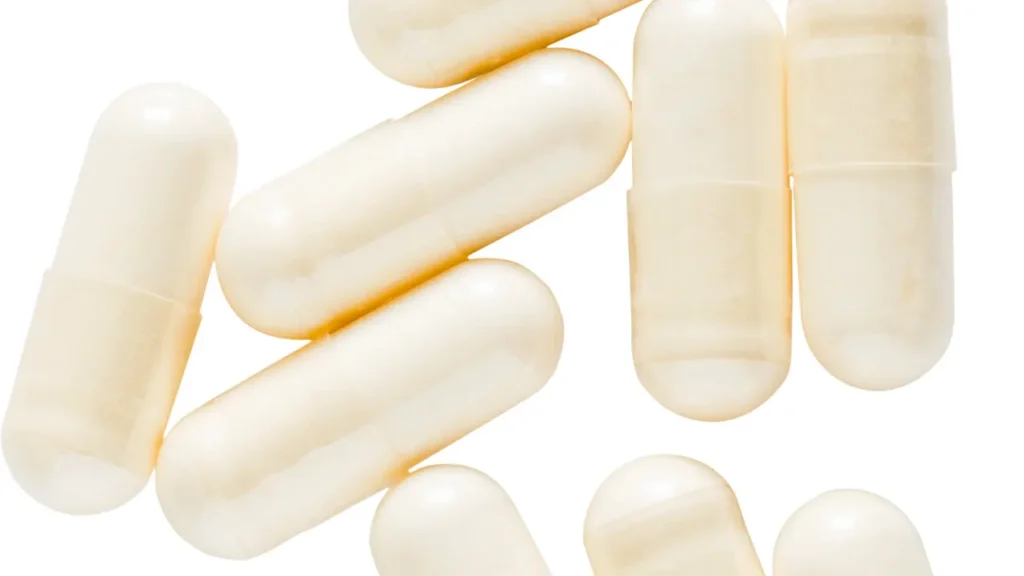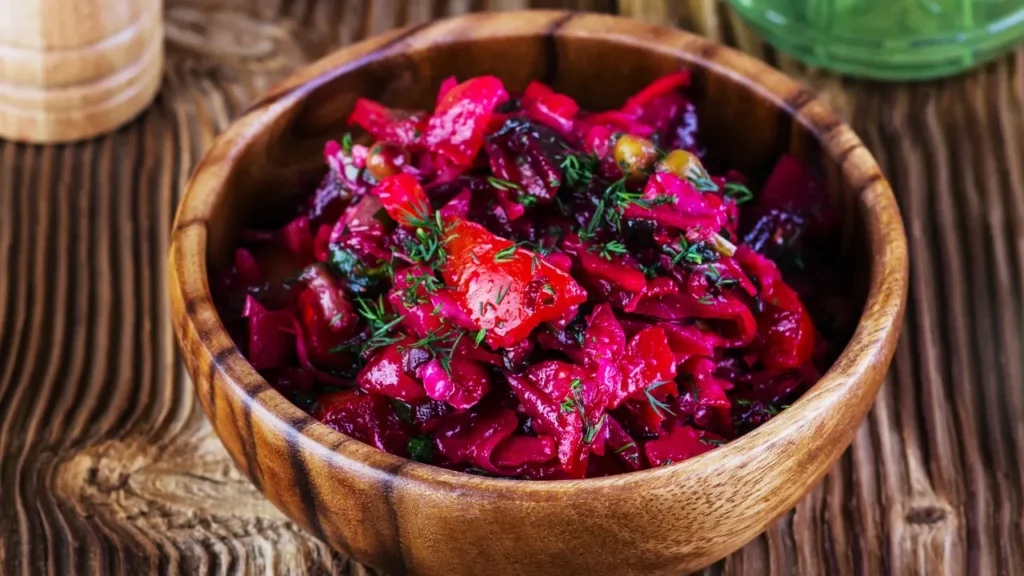Beta vulgaris L., also known as table beetroot, is a veggie that has been eaten for hundreds of years and is known for being very healthy. In recent years, scientists have realized that supplements made from beets, like betalain-enriched extract of table beet (beet), could be a useful food with many health benefits. This article aims to give a full picture of beet, including its health benefits, best dose, side effects, possible drug interactions, and best ways to use it safely, with a focus on the chemistry and physiology behind how it works.
You May Also Like:
Nordic Naturals Omega-3 Phospholipids: Evaluation of a Leading Brain Health Product
Quicker, Stronger and Smarter: How to Improve Cognitive Function by Prioritizing Your Brain Health
Beet: Benefits, Dosage, Side Effects, Drug Interactions, And Other Important Information is an original (NootropicsPlanet) article.
Nature of Beet
Beet comes from the roots of table beet. It has a rich source of betalains, which are a group of water-soluble colors with nitrogen. Betalains are split into two subclasses: betacyanins and betaxanthins. Betacyanins are what give betalains their red-violet color, and betaxanthins give them their yellow-orange color. Betanin, which is a betacyanin, is the main betalain found in beet. These pigments are only found in caryophyllales plants. They replace anthocyanins as the main pigments for red and yellow in these plants.
Health Benefits of Beet
Several in vitro and in vivo studies have shown that betalains are good at fighting free radicals and reducing inflammation. By getting rid of free radicals like hydroxyl radicals, superoxide anions, and peroxyl radicals, they protect cells from damage caused by oxidative stress. Also, betalains stop the production of cytokines that cause inflammation, like interleukin-1 (IL-1) and tumor necrosis factor- (TNF-), as well as enzymes that cause inflammation, like cyclooxygenase-2 (COX-2) and inducible nitric oxide synthase (iNOS). By blocking these inflammatory mediators, illnesses like arthritis, inflammatory bowel disease, and heart diseases that are linked to inflammation can be helped.
Anticancer Properties
Several in vitro and in vivo tests have shown that beet can possibly help fight cancer. Betalains stop cancer cells from multiplying by stopping the cell cycle, encouraging death, and stopping angiogenesis. They have also been shown to change the activity of signaling pathways, such as the nuclear factor-kappa B (NF-B) and mitogen-activated protein kinase (MAPK) pathways, which are very important for the development of cancer. These results show that beet could be a useful therapy to help treat cancer.
Heart and Artery Health
Beet supplements have been linked to better heart health, mostly because they relax the blood vessels. Betalains have been shown to increase the production of nitric oxide (NO) by increasing the activity of endothelial NO synthase (eNOS). This causes blood vessels to relax and blood flow to improve. In turn, this can help lower blood pressure and stop high blood pressure and cholesterol from occurring.
Exercise Performance
Beet has been looked at for its possible ergogenic benefits on athletes and other people who are physically active. Several studies have shown that taking beet supplements can improve exercise performance by boosting NO production. This improves oxygen delivery to the muscles that are working, lowers the amount of oxygen needed for exercise, and makes the muscles work better. Also, the antioxidant properties of betalains can help lower oxidative stress and muscle damage caused by exercise. This helps people get better at training and recover faster.

Chemistry of Betalain-Enriched Extract of Table Beet (Beet)
Betalains are the main bio-active chemicals in beet. They are water-soluble pigments that contain nitrogen and are related to molecules that come from indoles. They are only found in the caryophyllales. Instead of anthocyanins, which are found in other plant groups, they are the main red and yellow pigments in these plants. Based on their chemical structure and color, betalains can be put into two groups:
Betacyanins: These are the pigments that give beet its reddish-violet color. They are made up of a betalamic acid group linked to a cyclo-DOPA (dihydroxyphenylalanine) group. The red-violet color of table beetroot comes from betanin, which is the main betacyanin found in it. There are also smaller amounts of the betacyanins isobetanin, neobetanin, and prebetanin.
Betaxanthins: These pigments give some types of table beetroot their yellow-orange color. They are made up of a betalamic acid molecule that is linked to an amino acid or amine. Vulgaxanthin, miraxanthin, and indicaxanthin are all of the types of betaxanthins.
Due to how they are made, betalains are powerful antioxidants. They do this by giving electrons to free radicals, which stabilizes them. The fact that betalains have hydroxyl groups also helps them fight inflammation and act as antioxidants. The nitrogen atom in a molecule of betalain can form hydrogen bonds with other molecules. This makes the molecule more water-soluble and makes it easier for the body to absorb.
Physiological Properties of Beet
Effects against Free Radicals and Inflammation
Beet’s antioxidant and anti-inflammatory benefits are mostly caused by its ability to get rid of reactive oxygen species (ROS) and change how important signaling pathways work. Betalains, which are the bio-active chemicals in beet, give electrons to free radicals like hydroxyl radicals, superoxide anions, and peroxyl radicals. This neutralizes them and stops them from damaging cellular parts by oxidation. Also, betalains stop the activation of a key mediator of inflammation called the nuclear factor-kappa B (NF-B) signaling system. By stopping NF-B from getting activated, betalains can turn down the production of pro-inflammatory cytokines, like interleukin-1 (IL-1) and tumor necrosis factor- (TNF-), and enzymes that cause inflammation, like cyclooxygenase-2 (COX-2) and inducible nitric oxide synthase (iNOS).
Anticancer Properties
The power of betalains to change different cellular processes and signaling pathways is what gives beet its anticancer effects. By making cyclin-dependent kinases (CDKs) less active and cyclin-dependent kinase inhibitors (CKIs) more active, betalains can stop the cell cycle, especially at the G2/M phase. Also, betalains encourage apoptosis, or programmed cell death, by increasing the expression of pro-apoptotic proteins like Bax and caspases and lowering the expression of anti-apoptotic proteins like Bcl-2. Also, betalains stop the growth of new blood vessels that help tumors grow by stopping the production of vascular endothelial growth factor (VEGF) and decreasing the activity of matrix metalloproteinase (MMP).
Heart and Artery Health
Beet improves heart health by increasing the production of nitric oxide (NO) and decreasing reactive stress. Betalains boost the activity of endothelial nitric oxide synthase (eNOS), which makes the endothelial cells that line blood vessels make more NO. NO is a powerful vasodilator that opens blood vessels, improves blood flow, and lowers blood pressure. The antioxidant properties of betalains are also good for heart health. They protect the vascular endothelium from damage and inflammation caused by oxidative stress, which can lead to atherosclerosis.
Exercise Performance
Most of beet’s ergogenic benefits come from its ability to boost NO production and lower oxidative stress. When NO levels are high, vasodilation and increased blood flow help get more oxygen to moving muscles. This, in turn, can lower the amount of air needed for exercise and make it more effective. Also, the antioxidant properties of betalains help reduce oxidative stress and muscle damage caused by exercise. This helps people heal faster and get more out of their training.

Optimal Dosage of Beet
The best amount of beet to take depends on your age, health, and overall health goals. Most tests with people have given them between 100 mg and 500 mg of betalain per day. But because there haven’t been many well-controlled clinical studies, we still don’t know what the best dose of beet is. Before starting a supplement plan, it’s best to talk to a doctor or nurse to figure out the right dose based on your particular needs.
Side Effects of Beet
Most people think it’s safe to eat beet in moderate amounts. But in rare cases, people have experienced stomach pain, diarrhea, and allergic reactions. Beets may also cause a safe short-term change in the color of your urine and feces. This is called beeturia. When starting beet supplements, it is important to keep an eye out for any side effects and stop using them if they last or are serious.
Potential Substance Interactions with Beet
Even though there isn’t much proof that beet interacts badly with other drugs, it’s important to be careful when taking it with certain medications or supplements. Here are some possible interactions:
- Anticoagulants: Because beet can stop platelets from sticking together, taking it with anticoagulants like warfarin or heparin can make you more likely to bleed.
- Hypertension Drugs: Because beet relaxes blood vessels, it may make the blood pressure-lowering effects of hypertension drugs even stronger, which can cause low blood pressure. When using beet with these drugs, it is very important to keep a close eye on your blood pressure.
- Medications with Nitrates: Using beet with nitrate-containing drugs like nitroglycerin, isosorbide dinitrate, or isosorbide mononitrate can increase the risk of low blood pressure because both drugs relax the blood vessels.
Before taking beet with medications or other dietary supplements, it is best to talk to a health care expert to reduce the risk of bad interactions.

Best Responsible Use of Betalain-Enriched Extract of Table Beet (Beet)
To make sure that beet is used in a sensible way, you should follow the following rules:
- Talk to a health care professional: Before you start taking beet supplements, talk to a health care professional to find out how much you should take based on your needs, your health, and your health goals.
- Start with a moderate dose: Start with a moderate dose, as suggested by a health care professional, and slowly increase it if needed, while keeping an eye out for any side effects or bad reactions.
- Keep an eye out for side effects: Know that side effects like stomach pain, diarrhea, and allergic responses could happen. Discontinue use if it remains persistent or severe side effects appear.
- Be careful with drug interactions: Talk to a doctor or nurse before taking beet with other medications or dietary supplements to reduce the chances of bad interactions.
- Eat well and exercise regularly: Taking beet supplements can have many health benefits, but they shouldn’t be used in place of a healthy diet and frequent exercise. For the best benefits, use beet as a supplement to a healthy way of life.
Beet:
Conclusion
Due to their ability to fight cancer, inflammation, and free radicals, beets have been the subject of a lot of research. They are thought to have powerful free radical scavengers that can neutralize reactive oxygen species (ROS), which play a big role in aging cells and a number of different diseases. Make sure to talk to your doctor before starting a beet supplement regimen.

References:
- Nitrate Supplementation and Exercise Performance. Retrieved from: https://www.ncbi.nlm.nih.gov/pmc/articles/PMC4475713/
- Effects of beetroot juice supplementation on cardiorespiratory endurance in athletes: A systematic review. Retrieved from: https://www.mdpi.com/2072-6643/9/1/43
Important Note: The information contained in this article is for general informational purposes only, and should not be construed as health or medical advice, nor is it intended to diagnose, prevent, treat, or cure any disease or health condition. Before embarking on any diet, fitness regimen, or program of nutritional supplementation, it is advisable to consult your healthcare professional in order to determine its safety and probable efficacy in terms of your individual state of health.
Regarding Nutritional Supplements Or Other Non-Prescription Health Products: If any nutritional supplements or other non-prescription health products are mentioned in the foregoing article, any claims or statements made about them have not been evaluated by the U.S. Food and Drug Administration, and such nutritional supplements or other health products are not intended to diagnose, treat, cure, or prevent any disease.


